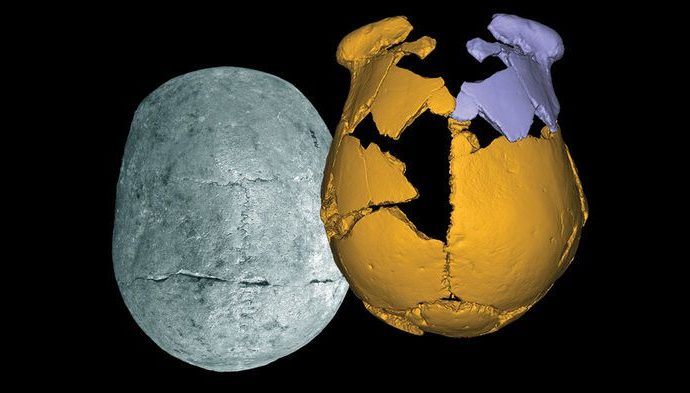Newly uncovered skulls in China have both human and Neanderthal features, a mix that so far hasn’t been seen in a hominid fossil.
Writing in the journal Science, researchers described the Pleistocene-era skulls as having “a morphological mosaic with differences from and similarities to their western contemporaries.” The brow ridges and skull mass resembled early modern humans of the Old World, the skulls had a flat brainpan like other eastern Eurasian humans of the time, but their ear canals and large back section of the skull resembled Neanderthals, the Washington Post explains.
Some experts think these skulls belong to ice-age humans called Denisovans, Science Magazine reports. But Xiujie Wu, author of the study, speculated to the magazine that these partial skull fossils could be a new species, “a kind of unknown or new archaic human that survived on in East Asia to 100,000 years ago.”
These skulls aren’t the first evidence, however, that humans and Neanderthals may have mated. 1-3% of the average person is made up of Neanderthal genes, according to a 2014 study.
Source: Time.com

































Leave a Comment
You must be logged in to post a comment.